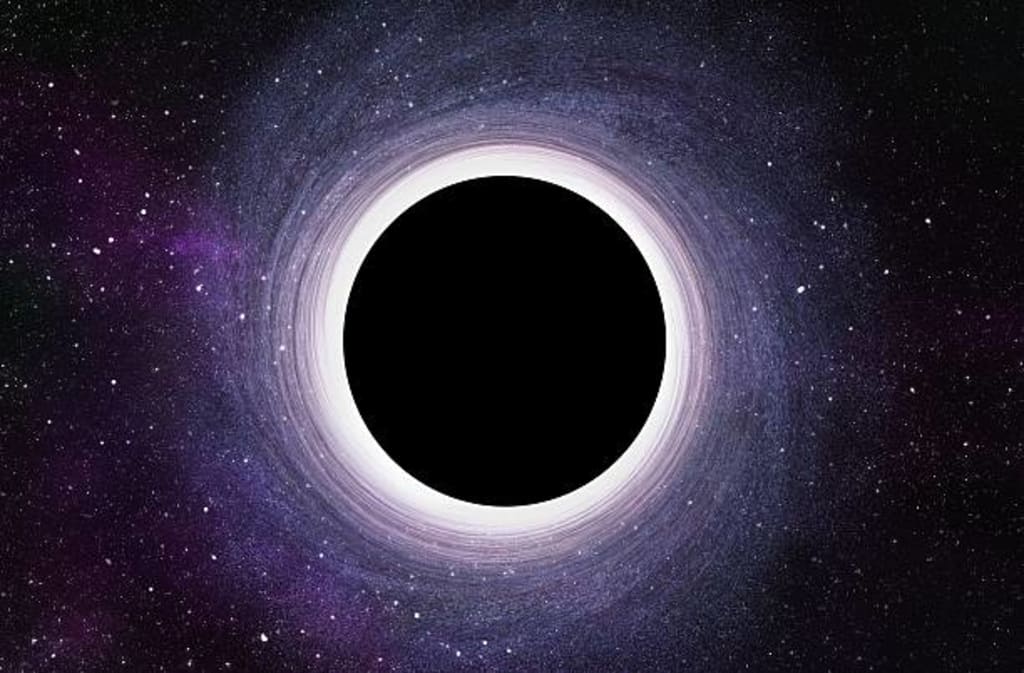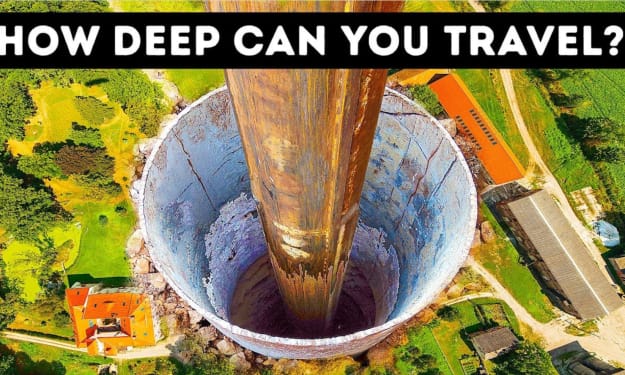
First of all, what Is a Black Hole?
- A black hole is a place in space where gravity pulls so much that even light can not get out. The gravity is so strong because matter has been squeezed into a tiny space. This can happen when a star is dying.
How Big Are Black Holes?
- Black holes can be big or small. Scientists think the smallest black holes are as small as just one atom. These black holes are very tiny but have the mass of a large mountain. Mass is the amount of matter, or "stuff," in an object.
Another kind of black hole is called "stellar." Its mass can be up to 20 times more than the mass of the sun. There may be many, many stellar mass black holes in Earth's galaxy. Earth's galaxy is called the Milky Way.
The largest black holes are called "supermassive." These black holes have masses that are more than 1 million suns together. Scientists have found proof that every large galaxy contains a supermassive black hole at its center. The supermassive black hole at the center of the Milky Way galaxy is called Sagittarius A. It has a mass equal to about 4 million suns and would fit inside a very large ball that could hold a few million Earths.
If Earth Were Sucked Into a Black Hole?
Because no light can get out, people can't see black holes. They are invisible. Space telescopes with special tools can help find black holes. The special tools can see how stars that are very close to black holes act differently than other stars.
The scenario you've described is a fascinating exploration of what might happen if Earth were to be pulled into a black hole. While it's important to note that such an event is extremely unlikely given the vast distances between celestial objects in space, let's summarize what could occur based on our current understanding of black holes:
1. Approaching the Black Hole: As Earth gets closer to a black hole, the side facing the black hole would experience intense tidal forces. These forces would stretch the planet and cause significant geological disturbances, including earthquakes, volcanic eruptions, and tsunamis.
2. Spaghettification: If Earth gets close enough to the black hole, it would eventually experience a phenomenon known as spaghettification. This is a result of the extreme gravitational forces of the black hole, which would stretch and compress the planet and everything on it, including people, into long, thin strings of atoms. It would be a catastrophic and lethal process.
3. Solar System Disruption: The gravitational pull of a nearby black hole would also disrupt the orbits of other celestial bodies in our solar system. Planets could collide with each other, get ejected from the solar system, or be swallowed by the black hole.
4. Radiation and Accretion Disk: As Earth and other matter fall into the black hole, they would contribute to the formation of an accretion disk, a spinning disk of hot, glowing gas and dust. This process would generate intense radiation, making survival even less likely due to the extreme heat and energy.
5. Unknown Physics Inside the Black Hole: Once inside the event horizon of the black hole, our understanding of physics breaks down, and we cannot predict what might happen. Concepts such as gravity, the speed of light, and atomic interactions may behave differently than in our known universe.
6. Existential Questions: Some theories in physics and cosmology suggest that black holes could be portals to other dimensions or universes, but these ideas are highly speculative, and we currently lack concrete evidence or understanding.
In reality, the likelihood of Earth being sucked into a black hole is exceedingly low, as black holes are typically located at vast distances from our solar system. Nonetheless, the scenario you've outlined is a fascinating exercise in exploring the extreme consequences of interacting with these mysterious cosmic objects.






Comments
Digiboy is not accepting comments at the moment
Want to show your support? Send them a one-off tip.